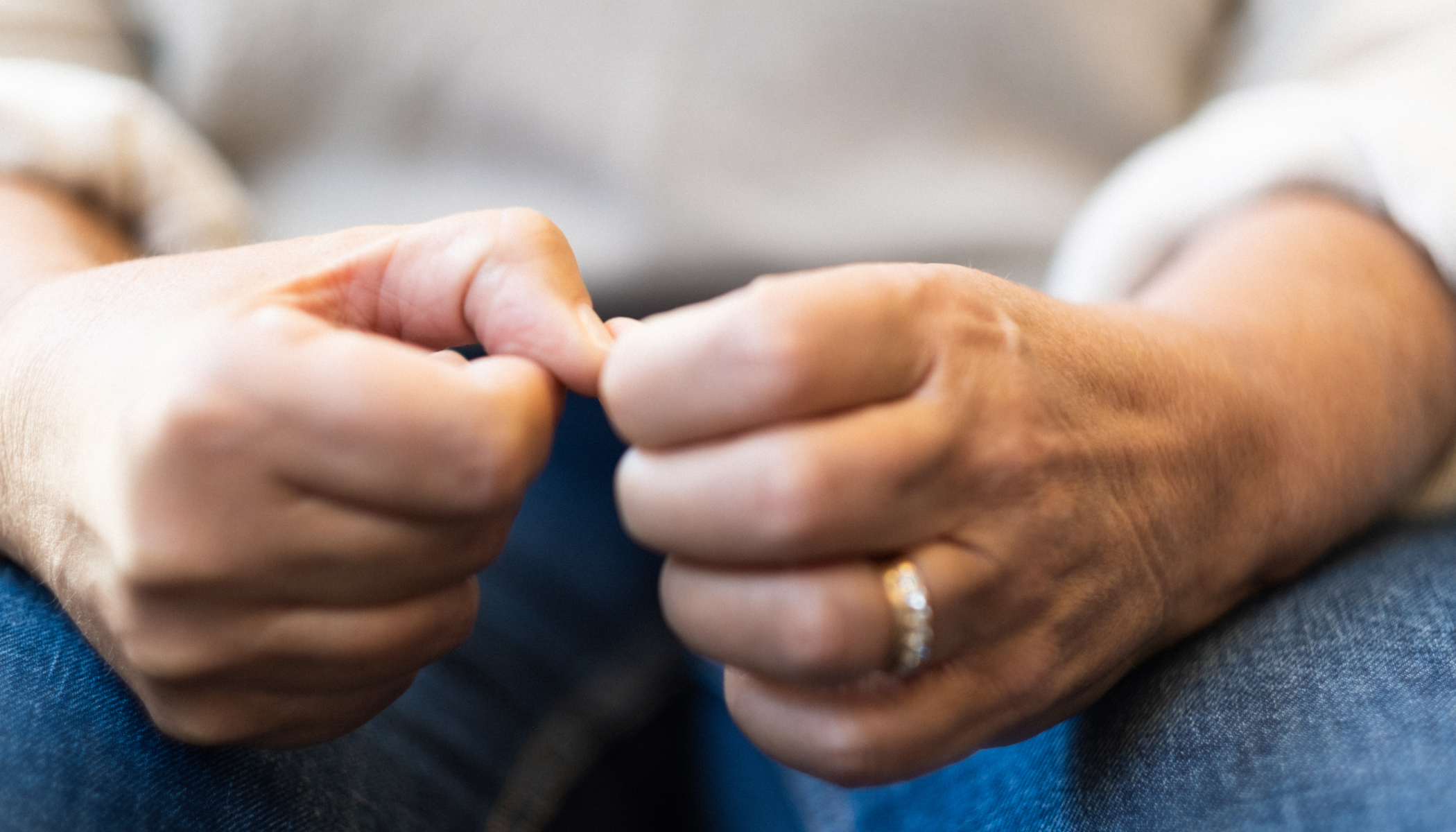‘Did I lock the car?’ ‘Is the oven definitely off?’ We’ve all had worrying thoughts like these. But if you have obsessive compulsive disorder (OCD) the uncertainty could eventually come to dominate your life.
The progression from normal behaviours into a mental disorder can be subtle. As a result, it’s not uncommon for people to live with OCD for years before they seek therapy. Stigmatisation and common misconceptions can also make living with OCD extremely challenging.
What is OCD?
Obsessive compulsive disorder is a mental disorder that manifests itself as obsessive thoughts and/or compulsive actions. Although people with OCD might recognise their thoughts as being irrational or unpleasant, they can’t help but think them over and over again.
Types of obsessive compulsive thoughts (or obsessions)
- Fear – often of something bad happening to a loved one
- Doubt – that you’ve not understood something correctly or done it properly
- Aggressive thoughts – about inflicting violence on someone, for example
- Obsessively ruminating over things – without coming to a solution
- Counting compulsions – where you feel the need to count things that appear in everyday life, like the number of letters in words
Compulsions are when you feel the repeated urge to do certain things. If you resist the compulsion, you might feel afraid or tense. If you carry out the compulsive action, the tension might ease for a short time, which motivates you to perform the action again repeatedly.
In this way, the disorder may gradually extend into multiple areas of your life and severely limit your everyday life.
Types of compulsory acts (or compulsions)
- Compulsive checking – like checking several times whether the oven is turned off, whether all the doors and windows are closed or whether important paperwork is where it should be
- Compulsive hand-washing – the need to wash your hands constantly, perhaps due to a fear of germs
- Compulsive orderliness – an uneasy feeling when objects are not symmetrical or arranged according to other rules, like books in height order
- Touching or tapping compulsion – the need to touch certain things or avoid touching them in all circumstances, like door handles
- Hoarding – obsessively collecting things out of fear of accidentally throwing something important away
What are the most common misconceptions about OCD?
1. ‘You can tell if someone has OCD’
Many obsessive compulsive rituals are difficult to hide, like if someone washes their hands 100 times a day or arrives late for work because they need to check and recheck everything before leaving the house.
In extreme cases, someone might not feel able to leave their home and end up neglecting their work, friends and family because the entire day is taken over by their obsessive compulsions.
The fact is: Struggling with obsessive compulsive thinking can often go unnoticed. Someone’s friends, family or colleagues may not be aware of or understand the problem. This doesn’t mean that the suffering or pressure is any easier, and those struggling with OCD will often need help and support.
2. ‘Stress causes OCD’
Compulsive thoughts and actions are often strongest when people are under stress. This is when they’re least able to control the impulse, because the compulsive ritual can sometimes help relieve stress for a short period of time. The coincidence of stress and obsessive compulsive thoughts makes it easy to mistake stress as the cause of OCD.
The fact is: While stress can exacerbate the symptoms of obsessive compulsive disorder, the cause of it usually lies elsewhere. Differences in the brain or life events like trauma can be the cause. Genetics may also come into play – the risk of developing OCD may be higher if a parent or other family member has it.
3. ‘Obsessive compulsive disorder isn’t treatable’
People who suffer from obsessive compulsive disorder are often ashamed of it, and some people believe that they can’t do anything to help it.
The fact is: OCD usually responds well to treatment. Combining medicine and behavioural therapy like CBT is often a successful strategy. Through therapy, patients can learn how to better cope with their symptoms and how to manage their compulsions.
What should I do if I think I – or someone I know – has OCD?
Taking obsessive compulsive thoughts or actions seriously as a symptom of a psychological disorder is a good start.
It’s important to remember that if disturbing thoughts come up, suppressing them doesn’t help. Talking to a doctor, considering therapy and joining a self-help group can help you feel less alone and give you access to first-hand help and advice.
How does therapy help with OCD?
It can be nerve-wracking to reach out for help. Even just the idea of talking about compulsions or obsessive thoughts to a therapist might make you feel anxious. But people usually find it’s worth it – one of the best treatments for OCD is behavioural therapy.
In therapy, you’ll get step-by-step guidance on how to cope with situations that challenge you without giving in to your compulsions. A variety of methods are used in therapy, like exposure, habituation and relaxation techniques.
When should I get help from a doctor?
If you’re experiencing compulsive thoughts or actions, speak to someone you trust and seek medical advice – the sooner, the better. A doctor or healthcare professional is a good first point of contact – they can advise you on the treatment options available to you.
This article has been medically reviewed by Livi doctor, Dr Monika Gratzke.



